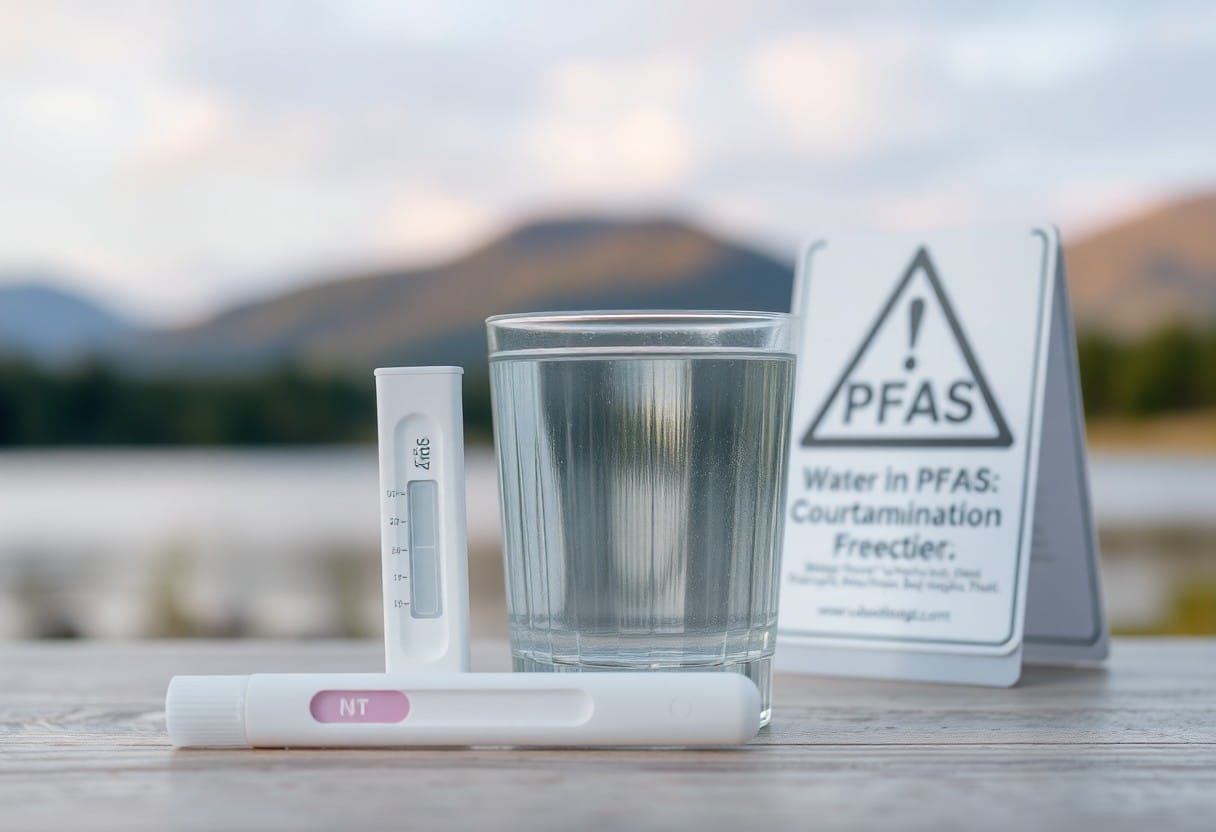Lawsuit experiences can be overwhelming, especially when dealing with a truck accident. Understanding the legal process and your rights is crucial for navigating this challenging situation. You may face medical bills, lost wages, and emotional distress, making it vital to take decisive action. In this guide, you’ll learn how to effectively manage a truck accident lawsuit, from gathering necessary evidence to negotiating settlements and working with experienced attorneys. With the right approach, you can ensure your interests are protected and seek the compensation you deserve.
Understanding Truck Accident Lawsuits
While dealing with the aftermath of a truck accident can be overwhelming, understanding the fundamental aspects of truck accident lawsuits will empower you during the legal process. These lawsuits can arise from various factors, including negligence, improper vehicle maintenance, or violations of safety regulations. Each case is unique, and being equipped with knowledge will help you make informed decisions.
What Constitutes a Truck Accident Case
Even minor collisions can escalate into significant legal challenges when they involve commercial trucks. A truck accident case typically entails proving that the driver, trucking company, or another party was negligent, leading to your injuries or damages. This involves gathering evidence, such as accident reports, witness statements, and medical records, to support your claims.
The Legal Process in Birmingham
If you decide to pursue a truck accident lawsuit, the legal process in Birmingham will involve several key stages, including filing a complaint, discovery, and potentially a trial. Understanding these steps is vital to navigate the system effectively and ensure that your rights are protected.
Case management is vital in the legal process. Following your accident, you will likely need to file a complaint to initiate the lawsuit and provide the necessary documentation, such as accident reports and medical records, to support your claim. Engage in discovery, where both parties exchange information and evidence. You may also undergo negotiations with the opposing party to reach a settlement before trial. If a satisfactory agreement isn’t achieved, your case may proceed to trial, where you will present your case before a judge or jury. Being prepared for each stage increases your chances of a favorable outcome.
Essential Factors to Consider
Clearly, handling a truck accident lawsuit in Birmingham involves paying attention to several necessary factors to ensure a successful outcome. Consider these key points:
- Understanding the nature of the accident.
- Gathering necessary evidence.
- Evaluating injuries and damages incurred.
- Identifying all potential defendants.
The importance of each factor cannot be overstated. You must approach your case with thorough research and preparation.
Determining Liability
Clearly, determining liability in a truck accident lawsuit is pivotal to securing compensation. You will need to establish who is at fault, which often involves examining the actions of the truck driver, the trucking company, and any third parties involved. Collecting evidence such as accident reports, witness statements, and expert opinions will heavily influence the outcome of your case.
Understanding Insurance Policies
The right understanding of insurance policies is vital when pursuing a truck accident lawsuit. You need to know what coverage is available under your policy, as well as the truck driver’s and the trucking company’s policies. This knowledge will inform your approach to negotiations and settlements.
Essentially, you must be aware that truck insurance policies can be complex. Commercial truck liability insurance is often higher than personal vehicle insurance, meaning potential compensation can be greater. However, policy limits and deductibles can greatly affect your claims. Furthermore, you should ensure that all necessary paperwork is completed and submitted correctly to avoid any disputes over coverage.
How to Gather Evidence
If you’ve been involved in a truck accident, gathering evidence is key to building a strong case. This involves documenting the scene, the vehicles involved, and any relevant surroundings. Collect information from witnesses, take photographs, and look for police reports. The more comprehensive your evidence, the stronger your position will be in the lawsuit process.
Importance of Documentation
Evidence is vital in proving fault and the extent of damages in a truck accident lawsuit. Proper documentation helps your attorney understand the circumstances surrounding the incident, which can greatly influence the outcome of your case. Thorough records enable a detailed analysis, ensuring your claims are well-supported.
Types of Evidence to Collect
With a variety of evidence available, it’s important to gather everything relevant to your case. Here are some types of evidence you should focus on:
| Photographs | Visual documentation of the scene, vehicles, and injuries |
| Witness Statements | Testimonies from people who observed the accident |
| Police Reports | Official documentation of the accident details |
| Medical Records | Documentations of injuries sustained and treatments received |
| Truck Driver Information | Details about the driver, including their logs and history |
To effectively collect evidence, you should focus on documenting various aspects surrounding the accident. Begin with obtaining photographs that showcase the scene, then gather witness statements to corroborate your account. Additionally, ensure you acquire police reports to formalize the incident details, along with medical records that provide insight into your injuries. Don’t forget to capture information on the truck driver, which includes their licensing and operational logs. This
- Photographs depicting the accident scene
- Witness statements supporting your claims
- Police reports detailing the event
- Medical records outlining your injuries
- Truck driver information for accountability
By compiling these evidences, you will strengthen your case and improve your odds of a favorable outcome in the lawsuit process.
Tips for Choosing the Right Attorney
Keep these factors in mind while selecting an attorney for your truck accident lawsuit in Birmingham:
- Experience in personal injury law
- Specialization in truck accident cases
- Positive client testimonials
- Transparent fee structure
After considering these points, you will be better positioned to choose the right legal representation.
Qualifications to Look For
Any attorney you consider should possess a solid background in personal injury law and have successfully handled cases similar to yours, specifically in truck accidents. It’s important to verify their track record, including settlements achieved and whether they have courtroom experience.
Questions to Ask Potential Attorneys
One of the best ways to gauge an attorney’s suitability for your case is to ask them specific questions. This will help you assess their experience, approach, and compatibility with your needs.
Plus, consider asking about their past successes with truck accident lawsuits, the strategy they would implement for your case, and their expected timeline and fees. Probing into their availability for communication and support throughout the process is equally important, as this ensures that you feel supported during such a difficult time. A good attorney should make you feel comfortable and validated in your concerns and questions.
Preparing for Court
Once again, preparation is vital for your upcoming court appearance. Gather all relevant evidence, such as documents related to the accident, police reports, medical records, and any witness statements. Consider rehearsing your testimony with your attorney to ensure you’re comfortable and familiar with the details. Understanding the layout of the courtroom and the proceedings can also help ease your nerves. Proper preparation not only enhances your confidence but also strengthens your case in the eyes of the court.
What to Expect During the Trial
Little do many anticipate the atmosphere of the courtroom during the trial. It can feel intimidating with the judge, jury, and opposing counsel present. You’ll likely have the opportunity to present your evidence and arguments, as well as respond to questions. It’s important to remain calm and collected, as the trial will unfold in phases, including opening statements, witness testimony, and closing arguments. Understanding this structure will help you navigate the process more effectively.
Strategies for Effective Testimony
There’s a lot to consider when preparing to testify in court. Your testimony can significantly influence the jury’s perception of your case, so it’s vital to be clear and concise. Focus on the facts, avoiding emotional outbursts, and ensure you understand the questions being asked. Speaking slowly and confidently can also convey your credibility. Be prepared for cross-examination, as the opposing counsel will likely try to challenge your statements.
A well-prepared testimony can greatly impact your case’s outcome. Practice articulating your experiences related to the truck accident clearly and efficiently. Stay composed while answering questions, as any display of uncertainty might weaken your credibility. Refrain from making assumptions, and answer only what you know to be true. Establish a rapport with your attorney beforehand so that you are in sync during the proceedings. Your goal should be to present a compelling story that underscores your experiences and the consequences of the accident you faced.

Common Mistakes to Avoid
After experiencing a truck accident, it’s easy to make mistakes that can harm your lawsuit. One common error is underestimating the importance of detailed documentation or speaking with insurance companies without legal advice. Avoiding these pitfalls will help you build a stronger case and improve your chances of a favorable outcome.
Misunderstanding Legal Terminology
To navigate a truck accident lawsuit effectively, you need to understand the legal terminology involved. Terms like “negligence” or “liability” carry significant implications for your case. Consulting with an attorney can clarify these terms, ensuring you grasp their meanings and applications in your situation.
Failing to Meet Deadlines
Meet all deadlines set by the court or your attorney, as failing to do so can severely impact your case. Legal claims have specific timelines that need to be adhered to, such as filing motions, submitting evidence, or responding to court orders.
Failing to adhere to deadlines could result in your lawsuit being dropped or dismissed. Each state has statutes of limitations, which may vary based on the nature of your claim. Missing these deadlines not only limits your legal options but can also jeopardize any potential compensation. Stay organized and proactive by keeping track of important dates and consulting your attorney to ensure all requirements are met in a timely manner.
Summing up
Taking this into account, effectively handling a truck accident lawsuit in Birmingham requires you to be well-informed and organized. Begin by gathering evidence and documentation, consulting with legal professionals, and understanding the specific regulations surrounding truck accidents in your area. Maintaining open communication with your attorney will help you navigate the complexities of the legal process. By staying proactive and focused, you can work toward a resolution that addresses your needs and compensation for your injuries while holding the responsible parties accountable.



















